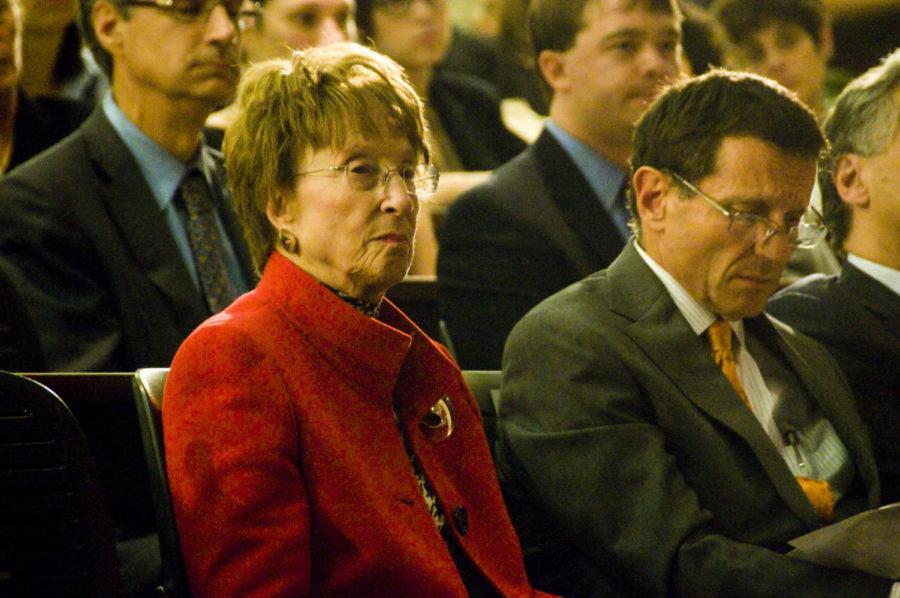The Matthew and Carolyn Bucksbaum Family Foundation will donate $42 million to the University of Chicago Medical Center (UCMC) to create the Bucksbaum Institute for Clinical Excellence, the foundation announced last Thursday.
The Bucksbaum Institute will work to improve doctor-patient communication by providing support and training for doctors from the beginning of medical school through their clinical work.
“This generous gift offers the opportunity to bring a new level of rigor to the study of the doctor-patient relationship and clinical judgment,” University President Robert Zimmer said in a September 22 press release. “The Bucksbaum Institute for Clinical Excellence provides an important complement to the biological research and clinical strengths of this institution.”
The institute will provide participants with junior faculty and more experienced practicing clinicians as mentors, and offer electives on the doctor-patient relationship to students outside the program, The New York Times reported on September 22.
The Bucksbaum Institute’s strong emphasis on a doctor’s bedside manner is novel in medical education. Dean of Medical Education Holly Humphrey told the New York Times that, seeing as approximately one in three Pritzker School of Medicine graduates goes on to work at an academic medical center, innovations from the Bucksbaum Institute will permeate medical care across the country.
The Institute’s director will be Pritzker School of Medicine Professor Mark Siegler, who also serves as the director for the MacLean Center for Clinical Medical Ethics. The Bucksbaums’ donation—one of the largest in UCMC history—came after the couple was able to experience Siegler’s warm bedside manner firsthand.
When Matthew Bucksbaum needed exploratory surgery to determine if he had lung cancer, Siegler, his general physician, showed up in the operating room, even though he was not required to do so.
When doctors found that Bucksbaum didn’t have cancer, Siegler led the operating room in a round of applause and rushed out to tell Carolyn Bucksbaum the good news.
“In Dr. Siegler, I have had a doctor who is interested in my husband and me as persons, not just diseases—although we’ve confronted him with a few of them,” Carolyn Bucksbaum said in the press release. “We decided to support a program that would, over time, teach many physicians the best ways to communicate and export those role-model doctors to other medical schools and communities, where they could carry on the process of superb patient care.”
Recent research shows that Americans struggle to communicate effectively with their doctors. A 2001 survey by the Commonwealth Fund, a private health care reform foundation, found that one in five American adults have trouble communicating with their doctors.
Kenneth Polonsky, Dean of the Biological Sciences Division and the Pritzker School of Medicine, praised the Bucksbaums for pinpointing a unique problem in medicine.
“They are giving us the resources to concentrate on training physicians who not only possess extraordinary technical knowledge, but can work effectively with patients to reach the best clinical decisions,” Polonsky said in the release.
Siegler said that the relationship between patient and doctor should be one based on confidence, patience, and trust. In an interview with the New York Times, Siegler spoke about the importance of showing compassion toward patients.
“To care for a patient, you have to care about a patient,” Siegler said.









